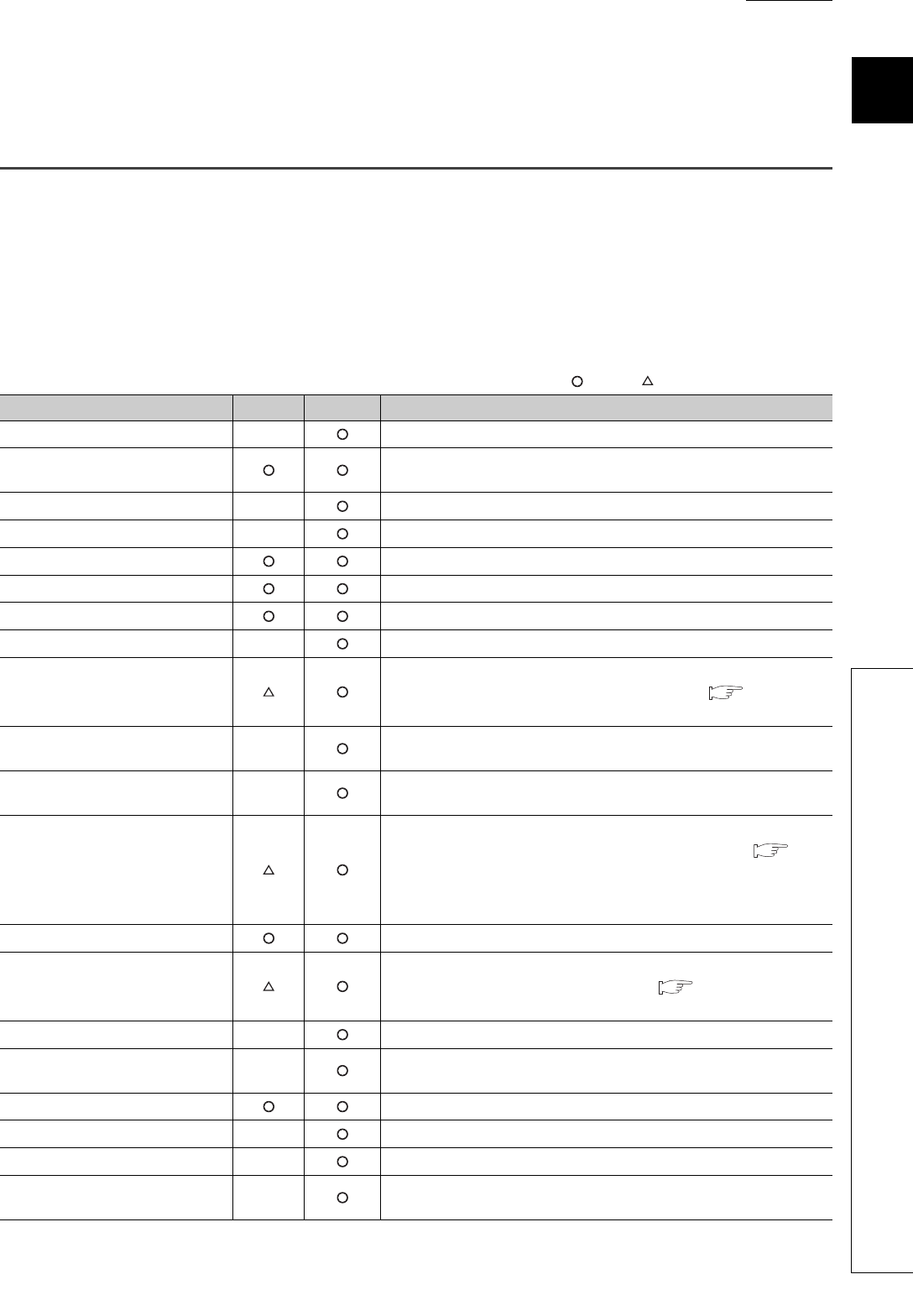
375
APPENDICES
A
Appendix 2 Comparison of the Q64TCN with the Q64TCTT, Q64TCTTBW, Q64TCRT, and
Q64TCRTBW
Appendix 2 Comparison of the Q64TCN with the
Q64TCTT, Q64TCTTBW, Q64TCRT, and
Q64TCRTBW
The Q64TCN has several new functions in addition to the functions of the Q64TCTT, Q64TCTTBW, Q64TCRT, and
Q64TCRTBW (hereafter abbreviated as the Q64TC).
This section describes the comparison of functions, I/O signals, and buffer memory between the Q64TCN and Q64TC
in accordance with the addition of the new functions. Precautions on replacing modules are also explained.
(1) Comparison of the functions between the Q64TCN and the Q64TC
The following table lists the functions supported by the Q64TCN and the Q64TC.
: Usable, : Partially usable, ×: Unusable
Function Q64TC Q64TCN Remarks
Control mode selection function ×
Control output setting at CPU stop
error
Control method selection function ×
Manual reset function ×
Manual control
Auto tuning function
Simple two-degree-of-freedom
Derivative action selection function ×
Setting change rate limiter setting
function
The temperature rise/temperature drop batch setting or individual setting
can be selected on Switch Setting with the Q64TCN. ( Page 190,
Section 4.9)
Temperature process value (PV)
scaling function
×
Moving averaging process to a
temperature process value (PV)
×
Alert function
The reference set value (SV) for the deviation alert can be selected from
among the following buffer memory areas with the Q64TCN. ( Page
194, Section 4.12)
•CH Set value (SV) monitor (Un\G25 to Un\G28)
•CH Set value (SV) setting (Un\G34, Un\G66, Un\G98, Un\G130)
RFB limiter function
Sensor correction function
Errors can be corrected by setting any two points (corrected offset value
and corrected gain value) with the Q64TCN. ( Page 213, Section
4.14 (2))
Auto-setting at input range change ×
Input/output (with another analog
module) function
×
ON delay output function
Self-tuning function ×
Peak current suppression function ×
Simultaneous temperature rise
function
×


















